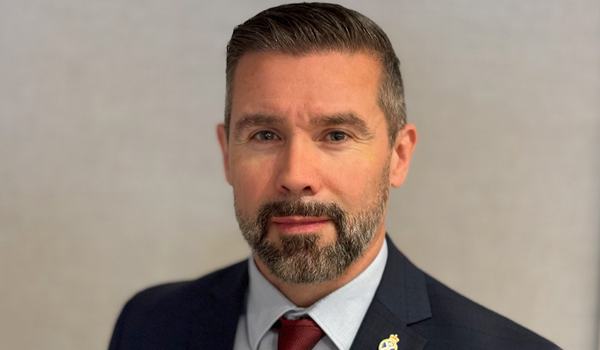Police Scotland chief constable faces ‘stark choice of cannibalising the service’ to deliver fair pay
Police Scotland is “stretched to breaking” with the chief constable facing the prospect of having to cannibalise the service to hand hard working officers a proper pay rise, the Scottish government will be told today.
Speaking at the Association of Scottish Police Superintendents (ASPS) Conference on Wednesday (May 21), the association’s president, Rob Hay, will stress that the number of police officers in Scotland is dropping, but demand isn’t.
And that chief constable Jo Farell faces a “Sophie’s Choice” when it comes to the future of the service… reduce police officer numbers or reduce police officer pay.
Since Police Scotland was established in 2013, the number of senior police officers at superintendent and chief superintendent rank has reduced by one third, the conference will be told.
Policing in Scotland needs more government investment. Mr Hay says: “Talks of a ‘record policing budget’ don’t account for inflationary pressures, and the policing budget has not kept pace with the demands on the service either.
“How do I know that? It is no secret that the chief constable has spoken about the dilemma she faces in this year’s pay negotiation. Without assistance from the Scottish government, the chief faces the stark choice of cannibalising the service to afford to offer a pay rise that is above inflation. Simply put: reduce police numbers or reduce pay. This is a choice no chief constable should have to make.”
He continues: “We look back at 2013, at the birth of Police Scotland, and note almost every pay point, at every rank is worth less now in real terms. And we look at equivalent professions in the public sector, whose pay growth has outstripped policing by 13 per cent and even higher in some cases.”
According to a recent ASPS survey, only 27 per cent of respondents think that the demand placed upon them in their role is manageable, and only 31 per cent say that Police Scotland’s Executive actively supports them in their role.
Superintendents and chief superintendents are also concerned about how often they are on-call, and how little they are paid for it. Two thirds (66.7 per cent) told the survey that there was an increased frequency of on-call, and zero respondents thought the current compensation for on-call is fair.
Mr Hay will say: “Given the over-reliance on on-call to provide essential policing functions and the uncomfortable reality that it is a non-compellable, voluntary duty, not covered by the Police Regulations, this is a clear message and a challenge to the police service and government.
“Colleagues have already spoken to me of superintendents ‘voting with their feet’ and deselecting themselves from on-call duties.”
Mr Hay will also talk about the “alarming rise” in the numbers of ASPS members suffering from mental health challenges, as the strain of increasing workloads and scrutiny takes its toll. Police Scotland as a whole has seen an 85 per cent increase in sickness absence for psychological illness and injury over the past four years.
Mr Hay says that superintendent ranks must be given “the time, the tools and the support to ensure we are creating a positive working environment that lets people deliver their absolute best”. He urged Police Scotland to implement technology that would help officers work smarter, not harder, such as introducing an app to record duty hours accurately.
He says: “Technology could help in this space; it could tell line managers when compensatory rest is due, when rest day banks start to exceed limits and, at workforce planning level, give an indication as to how far away resourcing is from actually having enough people to do the work.”
The ASPS Conference will be attended by Police Scotland Chief Constable Jo Farrell, and Angela Constance MSP, the Cabinet Secretary for Justice and Home Affairs.


